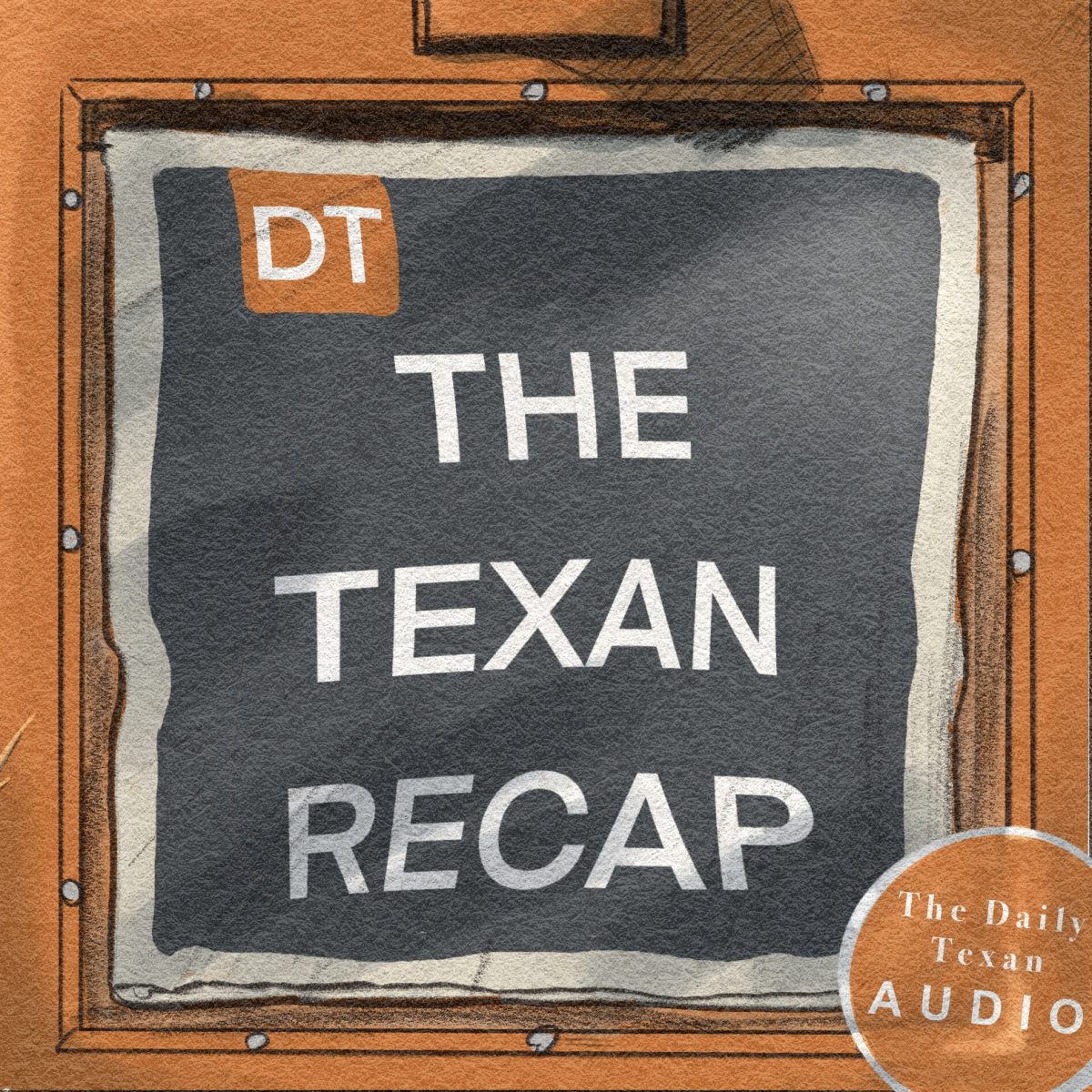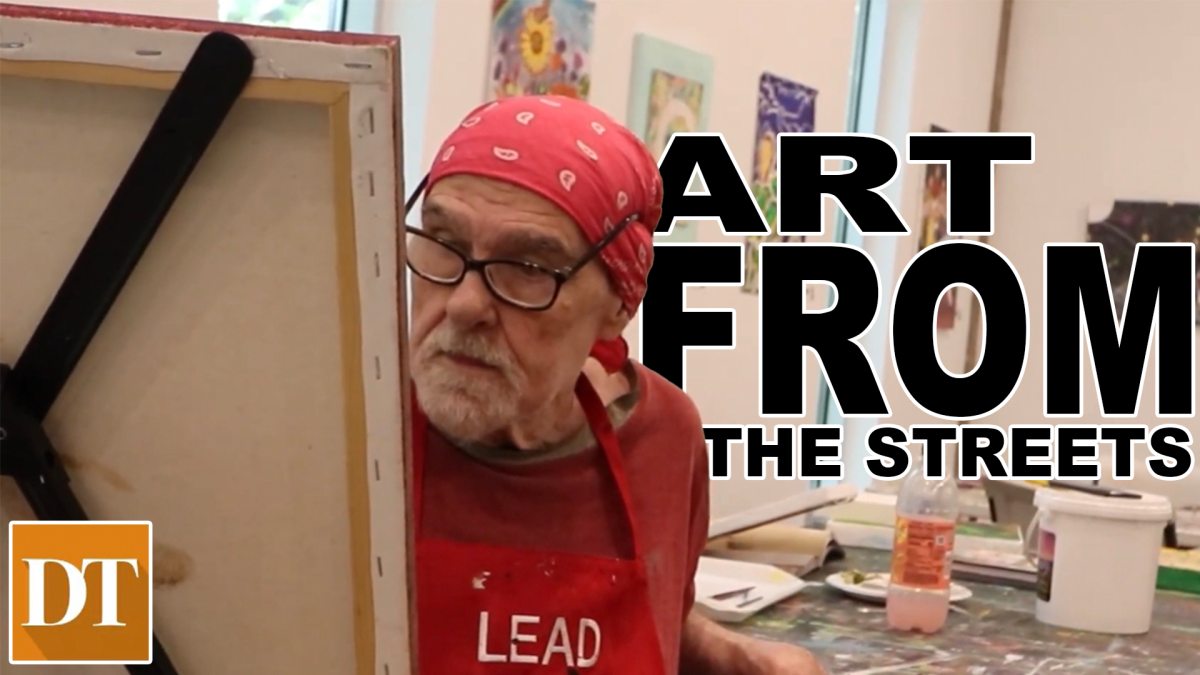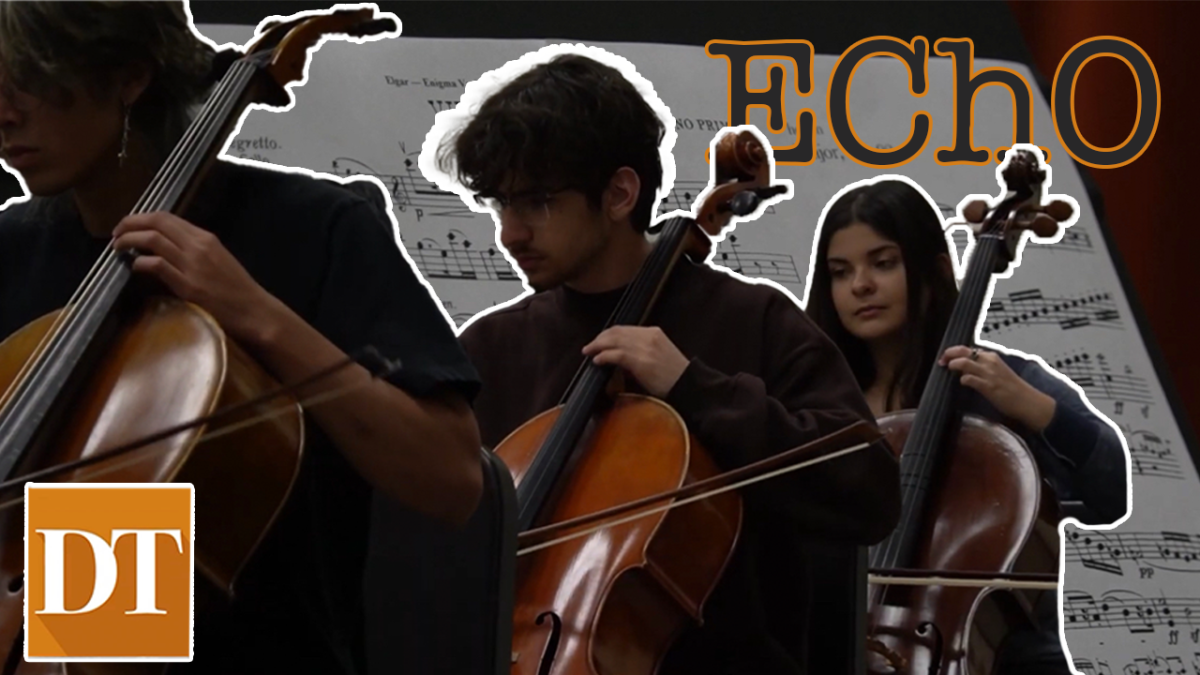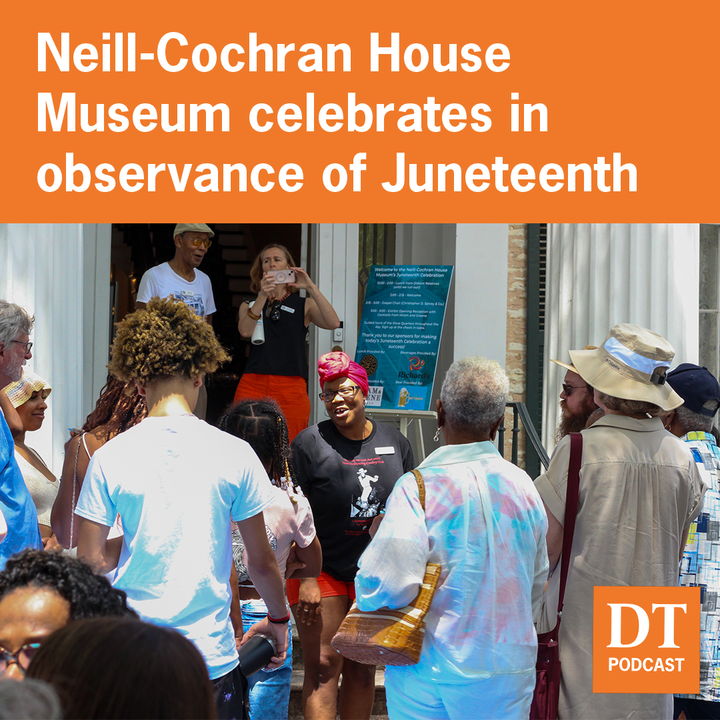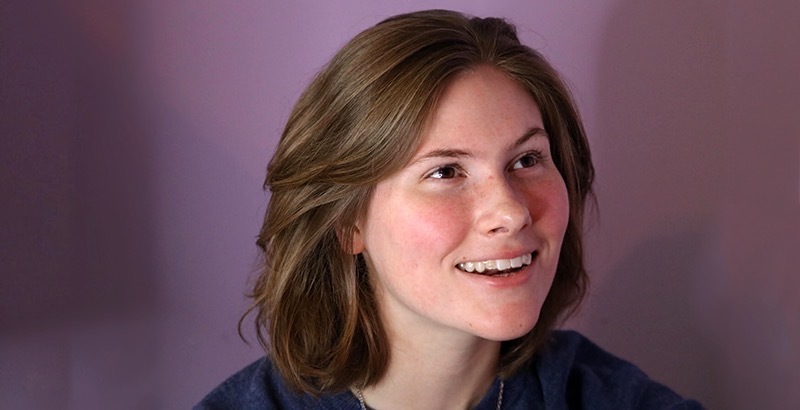Editor’s note: This podcast was originally published on Spotify on Oct. 22, 2023.
In this episode of The Texan Recap, audio editor Aislyn Gaddis chats about UT students volunteering at New York Fashion Week. Plus, a new club for ADHD inclusivity is in the final stages of approval.
Reported by Angelica Ruzanovais and Julian Petzold. Hosted and supervised by Aislyn Gaddis. Edited by Jack Lewellyn. Cover art by Emma Berke. Music by Top Flow Productions.
*upbeat music*
Aislyn Gaddis: UT students volunteer at New York Fashion Week…and a new club for ADHD inclusivity is in the final stages of approval.
I’m your host this week, Aislyn Gaddis and this is The Texan Recap.
Here’s what you missed this week.
*upbeat music*
Aislyn: Each semester, students from the University Fashion Group get the opportunity to volunteer at New York Fashion Week. General Life & Arts Reporter Angelica Ruzanovais spoke to students who attended this Fall and is here to tell us more about it. Thanks for joining me, Angelica
Angelica Ruzanovais: Thanks for having me. It’s a pleasure to be here.
Aislyn: So what is the University Fashion Group, or UFG, here at UT?
Angelica: The group is a student organization, it offers students the opportunity to really immerse themselves in the fashion industry as they gain hands-on experience, and some various roles and opportunities that they do is travel to New York Fashion Week, which is what the article was about. In my interview, I was also told that each year they have the capstone collection fashion show, and their seniors in the textile and apparel design major have the chance to showcase their work and their collection, and that’s really the origin of UFG, or University Fashion Group. They also have a zine magazine, and this is something newer, but their people submit their artwork, and that is open to all majors.
Aislyn: And students from UF GE get to attend New York Fashion Week each semester. How does that work?
Angelica: Basically, there is an application process. In my interview, the Vice President of PR of the group told me that it has gotten more competitive as there is more interest in attending this, but the New York Fashion Week is twice a year in the fall and in the spring. So students get to travel two times a year. It’s open to all members during the spring semester, unlike in the fall, where it is only for the officers where they make it more of a social thing.
The trip is funded solely by the students, and there’s a lot of networking involved. So members get the chance to connect with internships, with designers and really work closely with professionals in the field. Some things that they work on, or take on roles, is being dressers, or assigning models to their looks, any technical support and just being overall backstage staff in New York City.
Aislyn: You talked about this a little bit, but what do the students get to do once they’re there? Like what are some of the tasks that they do?
Angelica: Yes, so besides being backstage support for on-demand tasks, like going to get water for the CEO or the designer at the last minute or greeting guests at the front door, the students really get to work with the models themselves. So for example, assigning the number of looks to each model so that they don’t overlap with each other during the show and preparing them with styling before they go onto the runway, which I think is a pretty intimate aspect of that.
The students that I have talked to who have attended New York Fashion Week have told me that they’ve also done live streaming for some of the brands they’ve worked with, like the Global Fashion Collective and a Mexican streetwear brand called Nolo. So they get the chance to interact with digital platforms for these brands that they volunteer for and also work with the production team, from being with the makeup staff to models and also having the chance to work with the seating charts, which is called the run of show boards. I think all hands are on deck for students who attend the New York Fashion Week with UFG. And being part of that experience really gives them the opportunity to see what it’s like to work in the technical and backhand springs of the New York Fashion Week.
Aislyn: And some of the students you talk to spoke on how it feels to like actually be at New York Fashion Week. Could you tell me a little bit about what they told you?
Angelica: Yeah, so one of the comparisons that we’ve made during the interview is that it may feel like a very exclusive and mythical thing that’s not within reach for many people who don’t live in the cities that New York Fashion Week and other fashion week hosts themselves at, but really students describe it as being something that’s attainable. And, finally coming to the realization that being part of this community, this industry, is possible and the work that they contribute matters and is appreciated.
And, one example that Seth Brogdon included after I interviewed him was last spring semester when they were missing a model or a vacant spot for one of the brands that they were volunteering for he and another student got to fill in for them. So it’s just being available and really filling in for the spots that might be vacant or something that’s on-demand at that specific moment and sharing that space with other professionals and students who are really passionate and interested in what they do.
Aislyn: That was general life & arts reporter Angelica Ruzanovais. Thanks for being here today.
Angelica: Thank you. I appreciate your time.
*upbeat music*
Aislyn: UT students are in the final stages of starting a club for ADHD inclusivity on campus. General News Reporter Julian Petzold is here with the story. Thanks for being here today, Julian.
Julian Petzold: Yeah, no problem. Thank you so much for having me.
Aislyn: So a group of students are trying to make a club for ADHD inclusivity. Why?
Julian: Well, first of all, there’s no type of club or any type of organization on campus presently that is made specifically for students with ADHD. So these students just want to provide more resources for students with ADHD, as well as like a social network to connect all the students and another goal of the organization is to lobby university administration to create more resources for students with ADHD. They feel that there isn’t enough awareness of the condition around campus, and they just want more resources in general for the students to be able to succeed in their academic environment. So one of their main goals is just to improve that awareness.
Aislyn: What will the club offer for students with ADHD?
Julian: So the club aims to offer a nonjudgmental safe space for any students with ADHD that would like to join the environment and express themselves and share any problems or difficulties that they’re experiencing in their college experiences. Obviously, the people that relate to you the most are the people that have had experiences most similar to yourself. So these students with ADHD want to receive advice and support from other students that have had the same problems as them. I was able to sit down with Andrew Brock, a co-president of the org, which is called Students for ADHD Inclusivity. He told me that the org plans to host bi-weekly meetings to network students and discuss how they can improve campus recognition and improve campus understanding of how the university should treat students with the condition.
Aislyn: They also help to improve the university’s resources for students with ADHD. Could you tell me about that?
Julian: Yeah, so one of the main things that they want to see implemented is a place on campus for students to get testing for the condition. Currently, there are no places where students can go on campus to get actual tests, only places that they can refer you to private providers that are off campus, and those private providers offer the tests at very expensive rates. If the campus could provide a place on campus that would allow students to get tested at little to no cost, it would make this experience of finding out if you have ADHD a lot easier, more convenient and accessible for the students.
Aislyn: With how it is now, what should a student do if they think they have ADHD?
Julian: So I was able to talk to a sophomore that’s part of the org. Her name is Elli Ana Vela. She gave me a ton of great information about what students could do if they think they have the condition. She said that if you think you have it, she feels that you should definitely start by doing research on the condition. She says that symptoms show in different ways depending on if you’re male or female, as well as other factors. A resource that she said would have been very useful to her is the University Disability Access, which is a program that students with ADHD can register to. Being registered with this Disability Access could give students and professors more understanding of their condition, making it easier to work with the professors to give them extended deadlines and things like that that could help them complete their work.
Aislyn: And my last question, what did you learn about why a club like this is important?
Julian: So it’s very important at a huge university like this to make your community smaller. This campus is obviously very huge. It has a community of over 50,000 students. So it can be very overwhelming no matter what your background is just coming into a huge community like this. For students with a shared condition such as ADHD, it can be even more intimidating, even more daunting. So they just need to find a community that they can rely on that’s smaller than the huge public university campus provides. Yeah, just making the university feel small in any way you can, whether that’s like connecting to other students, whether the students through your major or just with a small spirit org or any type of other organization. That would definitely be my advice to any student at UT as well as any students that are in Students for ADHD Inclusivity.
Aislyn: That was general news reporter Julian Petzold. Thanks for taking the time to speak with me.
Julian: Yeah, thank you so much, Aislyn.
Aislyn: And that’s The Texan Recap for the week of October 16th. I’m Aislyn Gaddis.
*upbeat music*
Aislyn: The Texan Recap is a production of The Daily Texan Audio Department. If you like this episode, make sure you subscribe to The Daily Texan on your streaming platform of choice and follow us on Twitter @texanaudio. This episode was hosted and supervised by me, Aislyn Gaddis and edited by Jack Lewellyn. Special thanks to Angelica Ruzanovais and Julian Petzold for their reporting and to Katy Nelson, Mimi Calzada and Chloe Moore for contributing to this project. Cover art is by Emma Berke and music is by Top Flow Productions. To read the news stories in this episode or see more from the Texan, head on over to www.thedailytexan.com. Thanks for listening, and I’ll see you next week!



